Metaverse Investment Calculator
Metaverse Investment Calculator
Estimate potential earnings from your blockchain metaverse investments based on platform type, asset location, and activity level.
Platform Comparison
Decentraland
Best for: Creators, communities, and open ecosystems
Low transaction fees Ethereum + PolygonThe Sandbox
Best for: Game creation and play-to-earn
Medium transaction fees Ethereum + PolygonSolana-based
Best for: High-volume transactions and speed
Very low transaction fees SolanaWhen you step into a virtual world where your land, clothes, and art are truly yours-owned, traded, and earned like real property-you’re not just gaming. You’re living in a blockchain metaverse. These aren’t sci-fi fantasies anymore. In 2025, platforms like Decentraland and The Sandbox are real, active economies where people buy digital real estate, host concerts, and earn crypto just by showing up. And behind every avatar, every plot of land, every pixel of art? A blockchain. Not just for show. For ownership.
What Makes a Metaverse Platform Truly Blockchain-Based?
Not every virtual world is a blockchain metaverse. Some let you buy skins or unlock levels, but those items disappear when the server shuts down. A true blockchain metaverse gives you actual digital ownership. That means your assets are stored on a public ledger-immutable, transferable, and outside any company’s control. Think of it like owning a house. In a regular video game, your house is just a save file. In a blockchain metaverse, your house is an NFT. You can sell it. Rent it. Build on it. Even pass it to your kid. The blockchain doesn’t care who you are. It just records: This address owns this asset. The key ingredients? Three things:- Real digital assets as NFTs (land, wearables, items)
- Cryptocurrency for buying, selling, and paying fees
- Decentralized governance-users vote on rules, not a CEO
Decentraland: The Original Web-First Metaverse
If you want to understand blockchain metaverses, start with Decentraland. It launched in 2020 and has stayed the most used platform ever since. Built on Ethereum, it runs directly in your browser. No downloads. No high-end GPU. Just a link and a wallet. Its core is LAND-a 16x16 meter plot of virtual real estate. Each LAND is an NFT. Over 100,000 parcels have been sold since launch. Prime locations near popular districts like Fashion Street or Casino District regularly sell for 10-50 ETH ($20,000-$100,000+). Users don’t just buy land-they build on it. Art galleries, casinos, music venues, even virtual offices. Brands like Samsung, Adidas, and Warner Music have set up permanent galleries. In 2024, Decentraland hosted a 3-day music festival with 50,000 attendees, all paying entry in MANA, its native token. MANA isn’t just currency. It’s power. Holders vote on proposals: What fees should be charged? Should new land be released? Should the platform ban certain content? This DAO structure gives users real control. In 2023, a proposal to lower transaction fees passed with 87% support. Decentraland’s strength? It’s open. Anyone can build. Anyone can host. No gatekeepers. That’s why it’s the go-to for creators, communities, and DAOs needing a persistent, user-owned space.The Sandbox: Where Gaming Meets Creators
While Decentraland is the open city, The Sandbox is the game studio. It’s built on Ethereum too, but it’s designed for play. Its voxel-based graphics (think Minecraft meets Unreal Engine) make it easy to create games, puzzles, and interactive experiences-even if you’re not a coder. The Sandbox’s magic is its toolset:- VoxEdit - Free software to sculpt 3D NFT assets (like weapons, pets, or buildings)
- Game Maker - Drag-and-drop editor to turn assets into playable games
- Marketplace - Sell your creations as NFTs and earn SAND, the platform’s token

Blockchain Backbones: Ethereum, Solana, and the Rise of Alternatives
You can’t talk about blockchain metaverses without talking about the chains they run on. Most platforms still use Ethereum. But it’s not perfect. Ethereum’s smart contracts are powerful. Its developer tools are unmatched. But gas fees? They spike. During peak hours, buying land or trading an NFT can cost $15-$20. That’s a barrier for casual users. That’s why Layer 2s like Polygon are everywhere now. Polygon acts like a fast, cheap side road to Ethereum. Decentraland and The Sandbox both use Polygon for transactions. You pay pennies. The asset still lives on Ethereum. It’s the best of both worlds. Then there’s Solana. In 2025, it’s the dark horse. It handles 65,000 transactions per second. Fees? Less than a cent. The 2025 Alpenglow upgrade fixed most of its past crashes. Now, it’s the preferred chain for NFT marketplaces and fast-paced games. Platforms like Star Atlas and Upland have moved to Solana because players can jump in and out without waiting or paying a fortune. But there’s a trade-off. Solana isn’t as decentralized as Ethereum. If the core team goes down, the network can stall. Ethereum has 20,000+ nodes. Solana has 2,000. Polkadot and Flow are also in the mix. Polkadot lets metaverses talk to each other-imagine carrying your Decentraland outfit into The Sandbox. Flow, built by Dapper Labs (the team behind NBA Top Shot), is optimized for mass adoption. It’s simple. Fast. Safe. Great for brands wanting to reach millions without confusing users.How People Actually Make Money in These Platforms
People don’t just play in blockchain metaverses-they earn. Here’s how:- Land leasing - Own a plot? Rent it to a brand for a pop-up event. Rates range from $50-$2,000/month depending on location.
- Asset creation - Design a hat, weapon, or building in VoxEdit. Sell it on the marketplace. Top creators earn $5,000-$50,000/month.
- Event hosting - Throw a concert, art show, or conference. Charge entry in MANA or SAND. Top hosts make $100,000+ per event.
- Game development - Build a mini-game in The Sandbox’s Game Maker. Players pay to enter. You keep 85% of revenue.
- Staking and yield - Some platforms let you lock up MANA or SAND to earn interest. Rates vary from 3% to 12% APY.
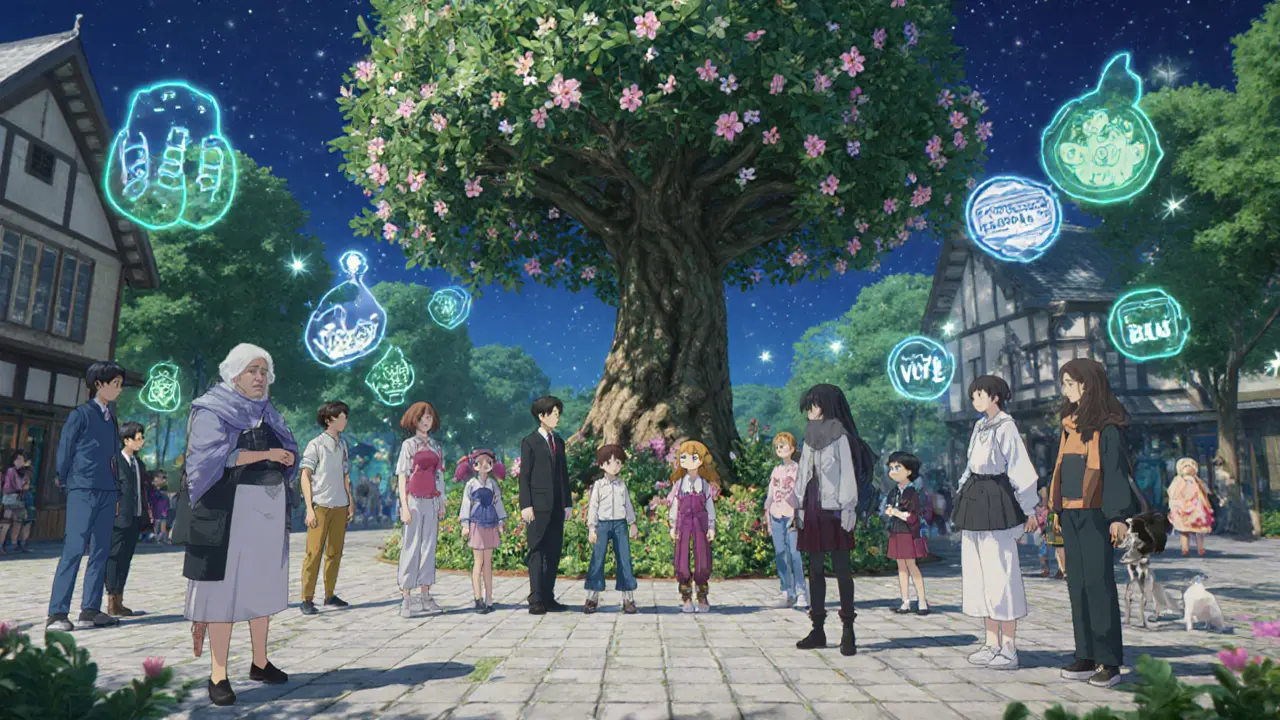
What’s Next? Interoperability, AI, and Mainstream Adoption
The biggest challenge today? Silos. Your NFT from Decentraland won’t work in The Sandbox. Your avatar can’t walk between worlds. That’s changing. Projects like Mirror and Spatial are building bridges. New standards like ERC-721X and IBC (Inter-Blockchain Communication) let assets move between chains. Soon, you might buy a virtual jacket on Solana, wear it in a Polygon-based concert, then sell it on Ethereum. AI is also stepping in. Chatbots in virtual offices now answer questions. AI artists generate custom wearables on demand. In 2025, some platforms use AI to auto-generate buildings based on user sketches. Mainstream adoption? It’s coming. Big companies aren’t just testing-they’re building teams. Nike opened a virtual store in The Sandbox. Hyundai runs test drives in Decentraland. Even universities are hosting classes in VR metaverses. The goal isn’t to replace the real world. It’s to add a layer where ownership, creativity, and economy merge. Where your digital life has real value.Choosing the Right Platform for You
So where do you start?- Want to build, host, and govern? Go to Decentraland. It’s the most open, most established. Best for creators and communities.
- Want to make games, earn from play? Try The Sandbox. Its tools are easy. The rewards are real.
- Want speed and low fees? Look at Solana-based platforms like Star Atlas or Upland. Great for high-volume trading and gaming.
- Just curious? Visit Decentraland’s website. Click ‘Explore’. No wallet needed. Walk around. See what’s there.
Are blockchain metaverse platforms safe?
They’re as safe as your wallet. The platforms themselves (Decentraland, The Sandbox) are secure. But if you lose your private key or click a phishing link, you lose everything. Always use a hardware wallet like Ledger or Trezor. Never share your seed phrase. Treat your digital assets like cash.
Do I need crypto to use a blockchain metaverse?
You don’t need crypto to explore. Decentraland lets you walk around without a wallet. But to buy land, trade NFTs, or earn rewards, you need crypto. Start with a free wallet like MetaMask. Buy a little ETH or MANA on Coinbase or Kraken. You don’t need much to begin.
Can I use these platforms on my phone?
Most platforms are browser-based, so yes-you can access them on mobile. But for full interaction, especially building or gaming, you’ll want a desktop. Mobile VR apps are still limited. Don’t expect to build a 3D gallery on your phone yet.
Are blockchain metaverses just for investors?
No. While some people buy land hoping to flip it, most users are creators, artists, educators, and gamers. You can earn by making art, hosting events, or playing games-even if you own nothing. The economy rewards participation, not just ownership.
What’s the difference between Decentraland and The Sandbox?
Decentraland is like a public city-open, flexible, and community-run. You’ll find galleries, offices, and forums. The Sandbox is like a game park-built for play, with tools to create games and earn rewards. Decentraland suits creators and brands. The Sandbox suits gamers and developers.

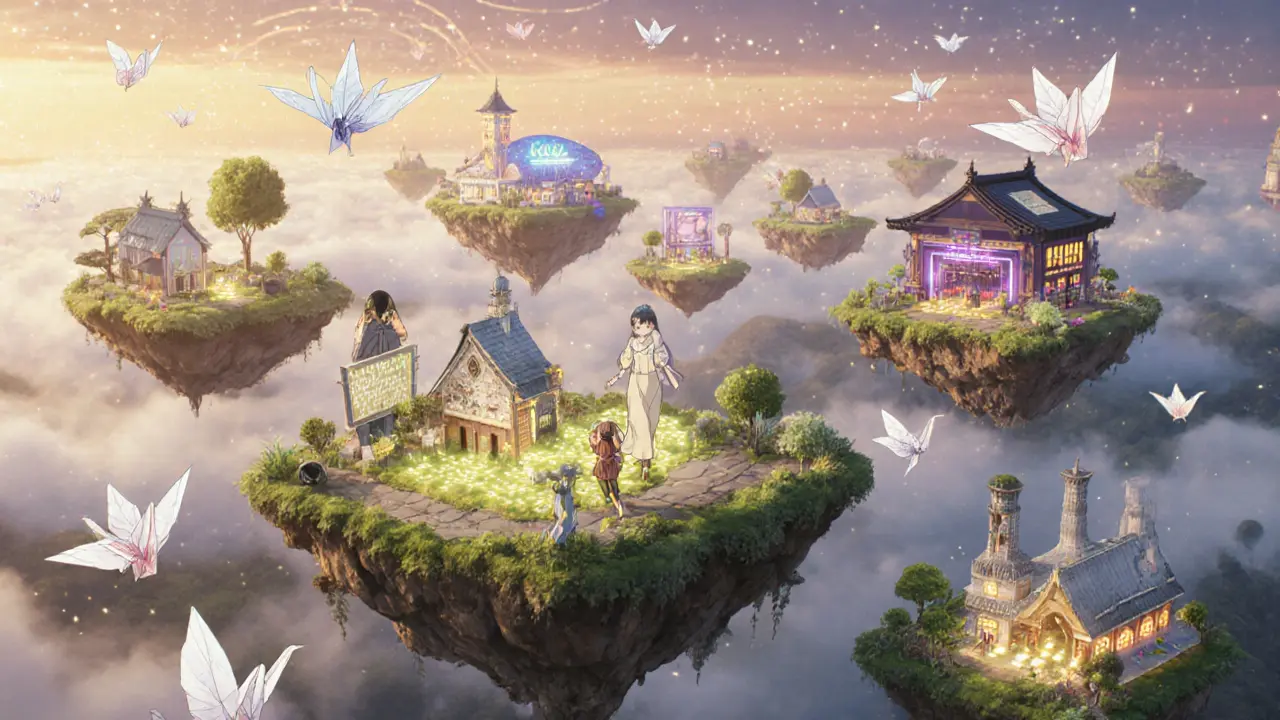
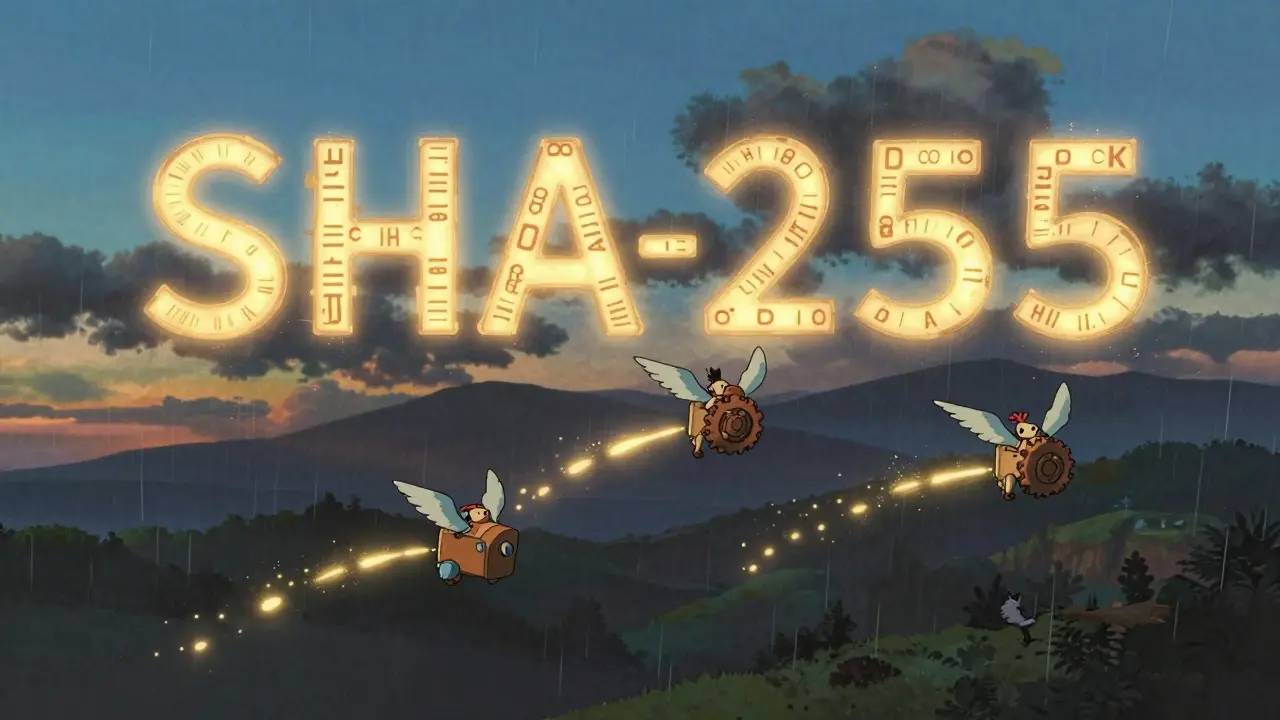

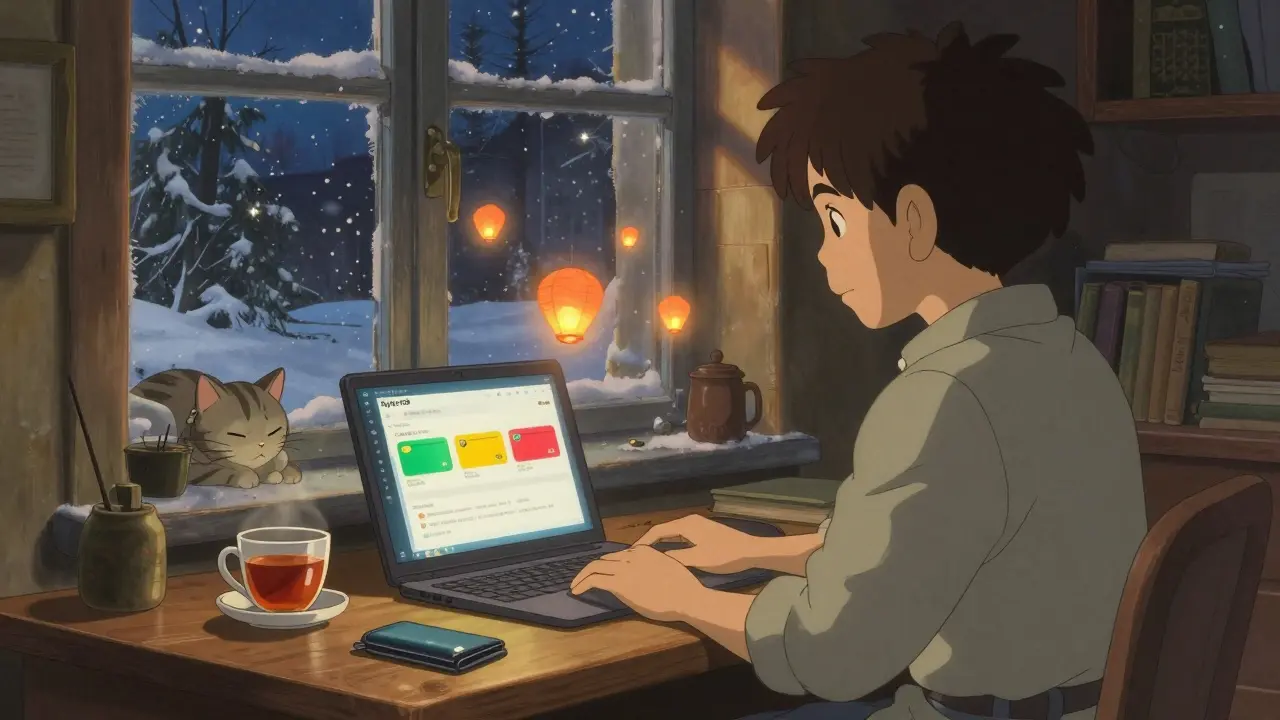
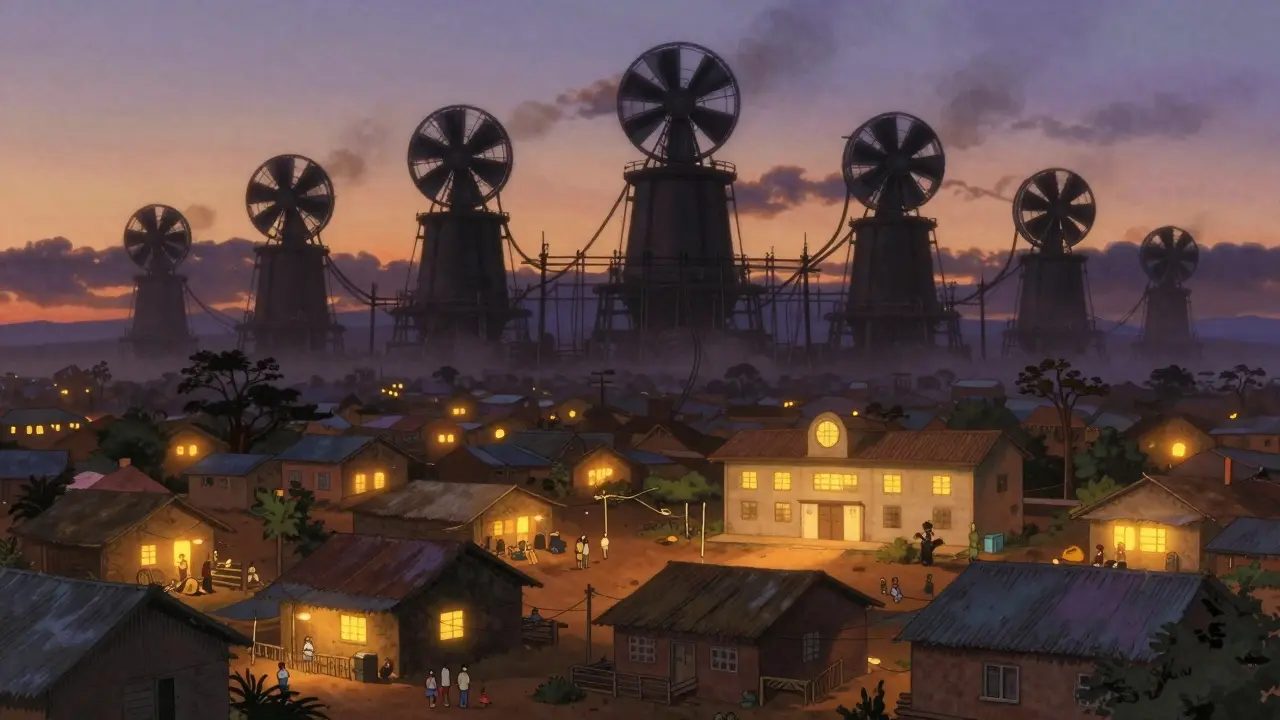
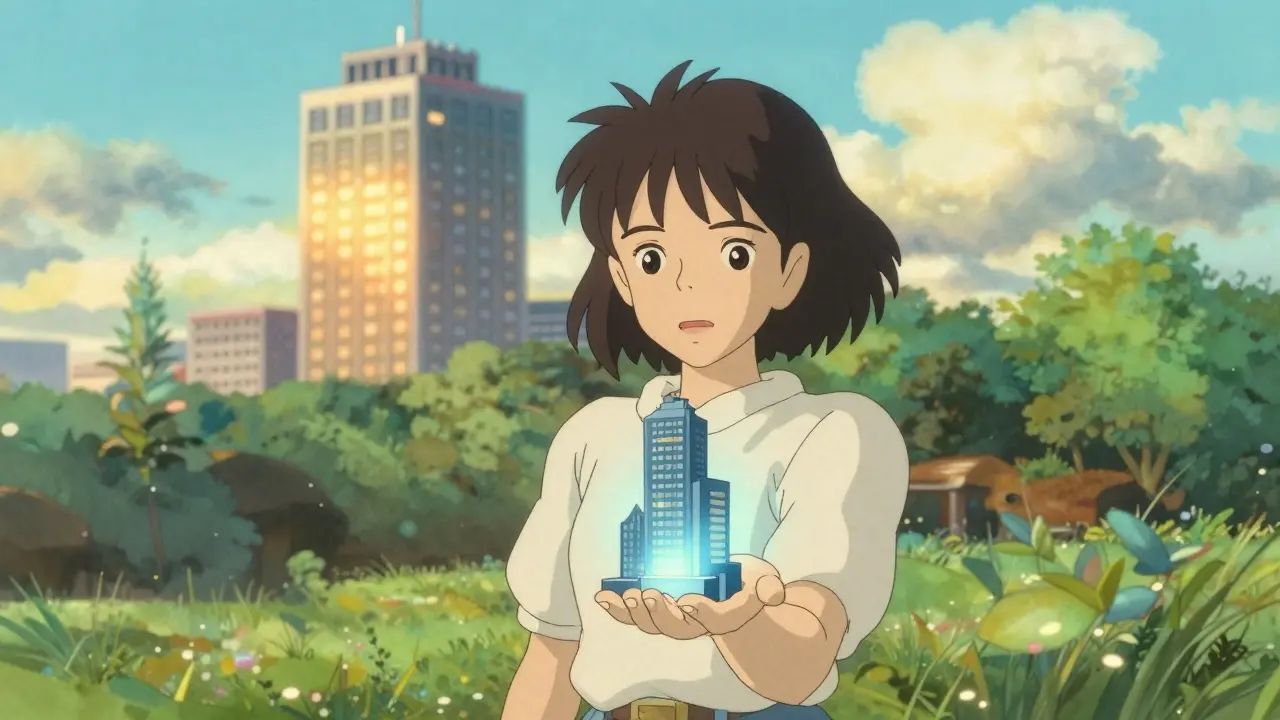
Emily Unter King
November 10, 2025 AT 06:18Decentraland’s DAO governance model is a masterclass in decentralized sovereignty. The 87% vote to reduce transaction fees in 2023 wasn’t performative-it was structural. This isn’t Web3 theater; it’s the first functional implementation of digital civic engagement at scale. The real innovation isn’t the NFT land-it’s the collective agency encoded in the protocol.
Kathy Ruff
November 10, 2025 AT 06:19For newcomers: start exploring without a wallet. Just click 'Explore' on Decentraland's site. Walk around, attend a free art show, listen to a live set. The metaverse isn’t a marketplace-it’s a cultural space you learn to inhabit. Ownership follows participation, not the other way around.
Kevin Mann
November 12, 2025 AT 04:59OK but let’s be real-this whole thing is a Ponzi scheme wrapped in a VR headset. 🤡 I saw a guy in The Sandbox buy a pixelated banana for $30k and then cry when it dropped to $28k. We’re not building the future-we’re just gambling in 3D. And don’t even get me started on the ‘AI-generated wearables’-that’s just ChatGPT drawing doodles and calling it art. 😭
John Doe
November 12, 2025 AT 07:03Blockchain metaverses? More like surveillance economies disguised as liberation. Every transaction is logged. Every avatar movement tracked. Every NFT purchase tied to your wallet-which is linked to your KYC’d identity. They say ‘ownership’ but they mean ‘data harvesting with a side of crypto.’ Who’s really controlling the ledger? The same banks that created the last crash. 🕵️♂️
Ryan Inouye
November 14, 2025 AT 05:17So we’re giving away digital real estate to foreigners while American kids can’t afford a studio apartment? This is the ultimate betrayal. Decentraland lets a guy in India rent out a virtual plot for $200/month while my cousin works two jobs just to pay rent in Austin. This isn’t innovation-it’s economic colonialism with NFTs.
Cydney Proctor
November 15, 2025 AT 06:35How quaint. You call this ‘digital ownership’? A JPEG of a pixelated hat, minted on a chain that consumes more energy than Slovenia, while real artists starve? This isn’t art. It’s a tax dodge for hedge funds with too much time and not enough taste. 🙄
Eric von Stackelberg
November 15, 2025 AT 09:02Let me ask you something: who authorized the creation of these metaverses? Who gave permission for the blockchain to become the new state? The Constitution doesn’t mention Ethereum. The Federal Reserve doesn’t recognize MANA. And yet here we are-voluntarily surrendering economic sovereignty to anonymous nodes. This isn’t progress. It’s a silent coup. And you’re all complicit.
Veeramani maran
November 16, 2025 AT 16:28bro i just tried sandbox and made a game where u catch falling crypto coins and i got 500 sand in 3 days!! its so fun!! but my pc is old and it lagged so bad lol 😅 i think i need better gpu but the tools are so easy to use!! anyone else try voxedit? its like lego but for nfts!!
Grace Huegel
November 17, 2025 AT 17:48It’s ironic. We’re told these platforms empower the individual, yet the top 1% of LAND holders control over 60% of prime real estate. The ‘democratic DAO’ is a facade-voting power is proportional to token holdings. The same wealth concentration that plagues the real world is just being replicated in 3D. The revolution was sold back to us as a subscription service.
Nitesh Bandgar
November 18, 2025 AT 14:00WHY IS EVERYONE SO SERIOUS?!?!?! This is a GAME! A DIGITAL PLAYGROUND! I built a castle out of NFT tacos and hosted a rave with 2000 avatars-WE WERE DANCING TO AI-GENERATED EDM WHILE MY FRIEND’S VIRTUAL DOG WEARED A GLOWING HAT!! THIS ISN’T ABOUT INVESTING, IT’S ABOUT JOY!! 😍🔥🎉 WHERE’S THE FUN?!?!?!?!?!
Rob Ashton
November 18, 2025 AT 16:15For those intimidated by the jargon: think of blockchain metaverses as open-source cities. Just as Linux gave anyone the power to build software, these platforms give anyone the power to build economies. You don’t need to be a coder, a millionaire, or a crypto bro. You need curiosity. Start small. Build one asset. Attend one event. Your voice, your creation, your contribution-all matter. The future isn’t owned by the wealthy. It’s built by the willing.
Cierra Ivery
November 20, 2025 AT 05:09Wait-so you’re telling me I can’t just ‘own’ a digital shirt without signing a 47-page EULA, paying gas fees in ETH, and trusting a team of devs who could vanish tomorrow? And you call this freedom? That’s not ownership-that’s a digital lease with a blockchain sticker. Also, why do people think ‘interoperability’ is a solution? If I can’t even carry my shoes from one platform to another, what’s the point? This is the digital equivalent of buying a car that only works on one gas station’s fuel.
Robin Hilton
November 20, 2025 AT 08:32Look, I get the hype. But let’s be honest-how many of these platforms are just glorified Minecraft servers with a whitepaper? I’ve seen more innovation in a Roblox game made by a 14-year-old than in all the ‘decentralized governance’ proposals combined. The real metaverse isn’t on Ethereum. It’s in the backrooms of Discord, where kids are building worlds with zero code and zero crypto. That’s where the soul is.
Michelle Sedita
November 21, 2025 AT 00:44There’s a quiet truth here: the metaverse isn’t about technology. It’s about longing. We’re not buying land-we’re buying belonging. In a world of isolation, of algorithmic feeds and hollow connections, these spaces offer something raw: presence. You don’t need to own an NFT to feel it. Just show up. Speak. Create. The blockchain merely records what the human spirit already knew-that we are not meant to be passive spectators. We are meant to build. Together.